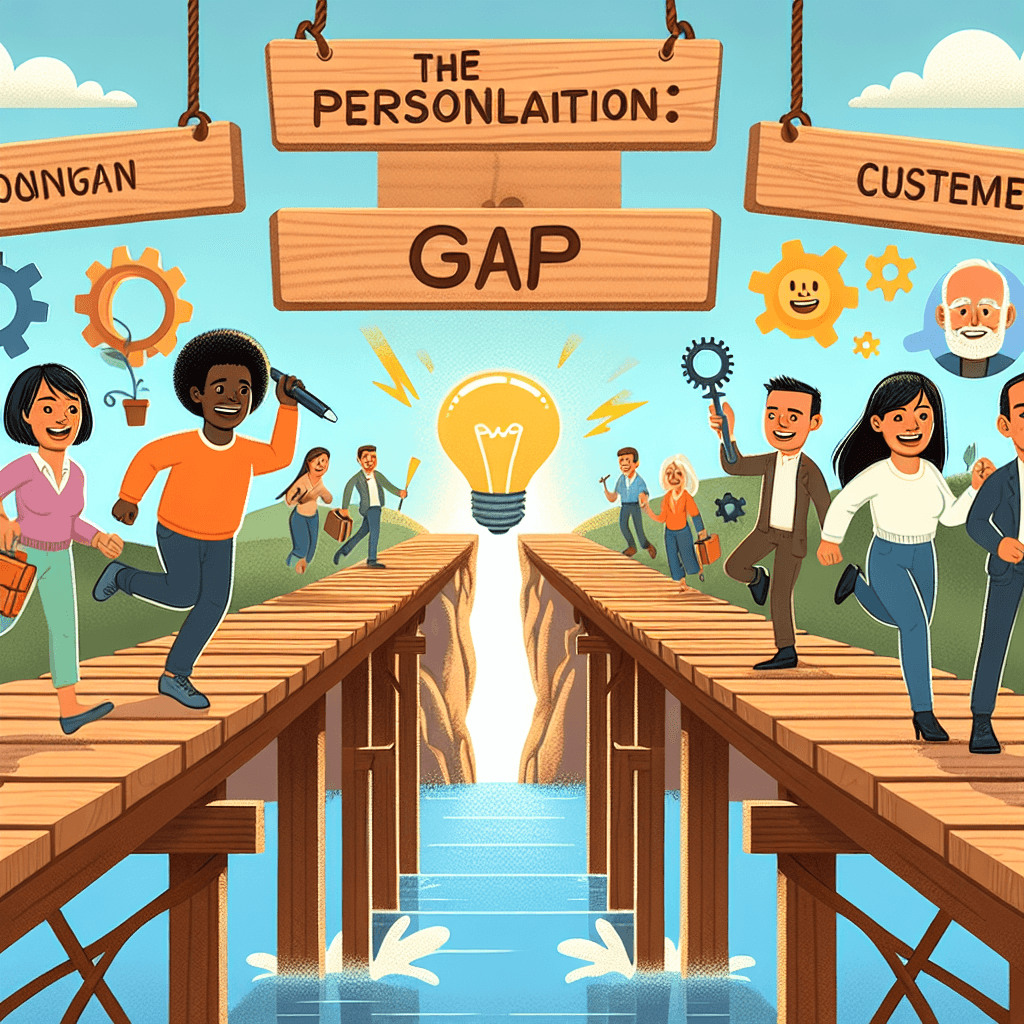Bridging the Personalization Gap: How Startups Deliver Authentic Customer Experiences.
In the relentless surge of the digital age, customers are no longer passive recipients of information. They're informed, discerning, and crave experiences tailored to their unique needs and preferences. This shift in consumer behavior has placed personalization at the forefront of business strategy, pushing companies to bridge the gap between generic interactions and authentic, personalized experiences.
Startups, unburdened by legacy systems and often fueled by a deep understanding of technology, are uniquely positioned to excel in this landscape. Unhampered by rigid frameworks, they are agile, experimental, and laser-focused on leveraging cutting-edge tools to deliver exceptional customer experiences. But what does authentic personalization entail, and how are startups successfully navigating this new frontier?
The Anatomy of Authentic Personalization
True personalization goes far beyond simply addressing a customer by their first name in an email. It's about understanding their motivations, anticipating their needs, and forging a genuine connection that resonates on a deeper level.
Here’s how startups are achieving this:
1. Data-Driven Insights: Startups are harnessing the power of data analytics to understand customer behavior, preferences, and pain points. By analyzing website traffic, purchase history, and social media interactions, they can tailor their offerings and communications to individual customers. This data-driven approach allows for hyper-personalization, ensuring customers feel seen and understood.
2. Leveraging AI and Machine Learning: Artificial intelligence and machine learning are no longer futuristic concepts; they are powerful tools in a startup's arsenal. These technologies can analyze vast amounts of data to predict customer behavior, personalize recommendations, and even automate customer service interactions, ensuring a seamless and responsive experience.
3. Cultivating a Culture of Customer-Centricity: Successful startups prioritize the customer experience at every touchpoint. This customer-centric approach permeates their company culture, from product development to marketing and customer support. By actively listening to customer feedback and incorporating it into their strategies, startups can ensure their offerings remain relevant and meet evolving customer needs.
4. Omnichannel Integration for Seamless Experiences: Customers today interact with brands across multiple channels – websites, social media, mobile apps, and physical stores. Startups recognize the importance of a seamless omnichannel experience, ensuring consistent messaging and personalized interactions across all touchpoints. This cohesive approach fosters a sense of familiarity and strengthens the customer relationship.
Examples of Startups Championing Personalization
The proof of successful personalization lies in its execution. Here are a few examples of startups effectively bridging the personalization gap:
Subscription Box Services: Companies like Stitch Fix and Blue Apron leverage data and algorithms to curate personalized boxes of clothing or meal ingredients, respectively. By gathering customer preferences through quizzes and feedback mechanisms, they deliver tailored experiences that delight and retain customers.
EdTech Platforms: The education technology sector is witnessing a surge in personalized learning solutions. Startups are developing AI-powered platforms that adapt to individual learning styles and pace, providing customized content and assessments to maximize knowledge retention.
Fintech Innovators: The financial technology industry is leveraging personalization to empower customers and enhance financial well-being. Startups are creating personalized budgeting apps that analyze spending habits and provide tailored financial advice, helping individuals achieve their financial goals.
The Tangible Benefits of Personalized Experiences
The investment in personalization yields significant returns for startups willing to embrace its potential.
Increased Customer Loyalty and Retention: When customers feel valued and understood, they are more likely to become repeat buyers and brand advocates. Personalization fosters a sense of loyalty that translates into sustainable business growth.
Higher Conversion Rates: Tailored recommendations and targeted messaging resonate more effectively with customers, leading to increased conversion rates and improved sales.
Enhanced Customer Engagement and Satisfaction: Personalized experiences foster deeper engagement, with customers more likely to interact with brands that cater to their individual needs. This enhanced engagement leads to higher satisfaction levels and positive brand perception.
The Future of Personalization: A Continuous Evolution
As technology continues its rapid evolution, the possibilities for personalization are limitless. Startups are at the forefront of this exciting frontier, constantly exploring innovative ways to deepen customer relationships and deliver exceptional experiences.
From virtual reality experiences tailored to individual preferences to hyper-personalized content delivered in real-time, the future of personalization promises to be dynamic, engaging, and customer-centric. Startups that embrace this evolution will undoubtedly thrive, forging lasting connections with customers in an increasingly digital world.
Want to learn more about leveraging technology to enhance customer experiences and drive business growth? Explore a curated collection of courses and resources on 01TEK today.
You must either modify your dreams or magnify your skills.
Jim Rohn



